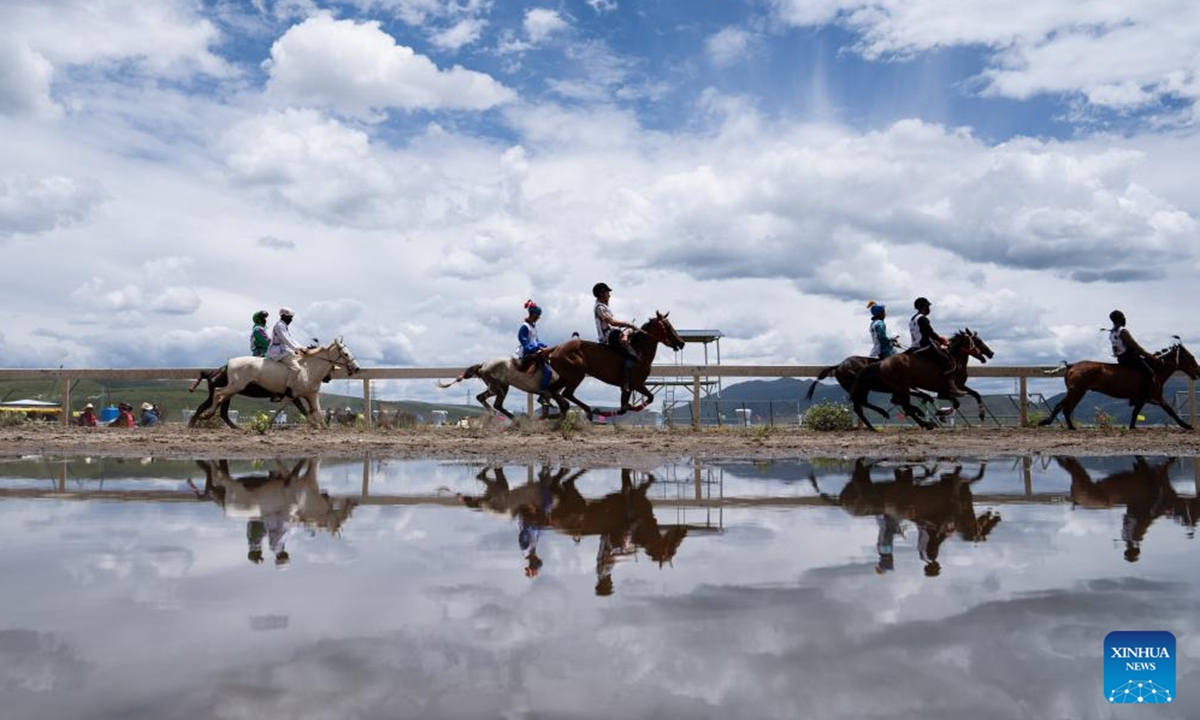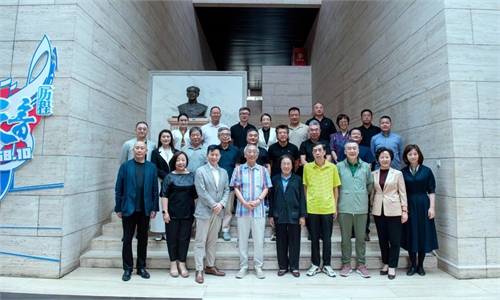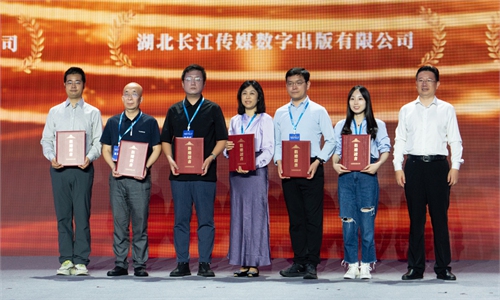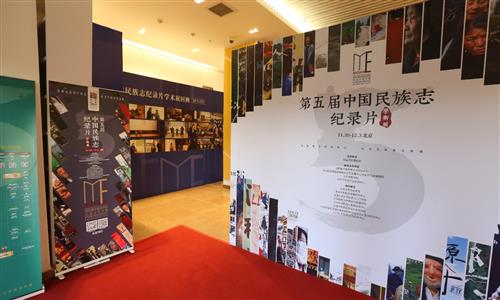ARTS / CULTURE & LEISURE
Director of National Ethnic Affairs Commission calls for new narratives to combat Western misrepresentation
Literary richness should stem from ‘fusion’

Riders participate in a horse racing at a racecourse in Litang County, the Tibetan Autonomous Prefecture of Garze, southwest China's Sichuan Province, July 30, 2024. A horse racing event kicked off in Litang County on Tuesday, attracting nearly 1,000 herdsmen from across the county to participate in a variety of activities. (Photo: Xinhua)
"Under the powerful pressure of Western public opinion, our stories of ethnic unity are distorted as 'ethnic assimilation,' the modernization of the ethnic minority regions is misrepresented as 're-source plundering,' and the preservation of folk culture is twisted into 'cultural genocide.' If we do not strive to create new narratives, the story of the Chinese nation will be fixed upon these lies," Pan Yue, director of China's National Ethnic Affairs Commission, remarked.
Pan made the remarks at the first plenary meeting of the jury for the 13th National Ethnic Minority Literary Creation Junma Award, one of the highest honors in China's ethnic minority literature field.
"Ethnic minority literature should undertake the historical mission of incorporating the stories, experiences, and figures of the Chinese national community into its creations, and tell the true story of China to diverse audiences both at home and abroad," noted Pan.
Pan highlighted the intrinsic diversity and unity in Chinese literature, stating that "a history of Chinese literature is a history of cultural exchanges and integration among various ethnic groups."
For example, The Book of Songs, China's first anthology of poems dating back to more than 2,000 years ago, combined the literary traditions of the Yellow River basin and its surrounding states, while the Songs of Chu, an ancient anthology of Chinese romantic poetry from the 1st century BC, combined the folk songs and dialectal tones of the middle and lower reaches of the Yangtze River and its neighboring regions.
He stressed that literary richness should stem from the interaction and fusion of different regions, ethnic groups, and cultures, rather than from a single ethnic group alone.
Since the founding of the People's Republic of China, numerous writers of ethnic minority groups such as the Mongolian, Uygur, Yi, Zhuang, Bai, and Dai have created a wealth of poetry and novels in their ethnic languages on the theme of "the motherland." Their heartfelt works collectively express the concept of a shared community bound by common joys and sorrow, honor and disgrace, life and death, as well as destiny.
Pan pointed out that ethnic literature should maintain a balance between diversity and unity. "While Chinese civilization features geographical and cultural diversity, we have a unified national structure, a cohesive Chinese nation, and a shared political and cultural identity," he said.
"The primary criterion for evaluating ethnic literature should be its contribution to strengthening the sense of community for the Chinese nation," Pan noted.
The winners of the 13th National Ethnic Minority Literary Creation Junma Award were also announced on July 31. The awards, jointly hosted by the China Writers Association and the National Ethnic Affairs Commission, recognized 25 works and five translators after the evaluation by the award committee.
Since its inception in 1981, the Junma Award has honored 734 works and 44 translators. In the year 2024, the selection process began on March 1 and drew 381 submissions from 11 translators.
Pan outlined his aspirations for ethnic minority literature, emphasizing its role in upholding an accurate view of Chinese national history, nurturing a shared spiritual homeland for the Chinese nation, and providing strong support for telling the story of the Chinese national community.



